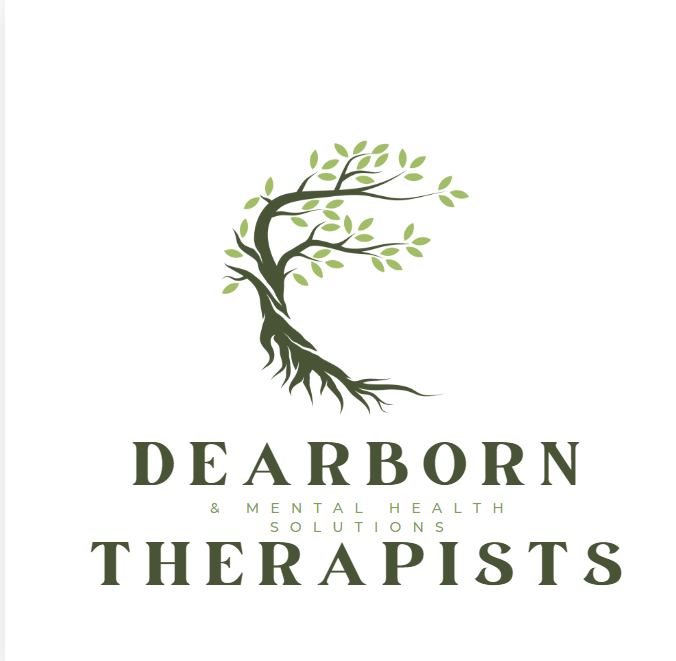What Are the Signs of Depression? Recognizing Symptoms and Finding the Right Help in Dearborn, Michigan
Understand the common signs of depression and find trusted support. Dearborn Therapists & Mental Health Solutions helps connect you with licensed therapists and mental health professionals in Dearborn, Michigan

What Are the Signs of Depression? Recognizing Symptoms and Finding the Right Help in Dearborn, Michigan
Understanding Depression and How to Get Help
Feeling constantly tired, sad, or disconnected from the world around you can make even simple tasks feel impossible. When these feelings persist for weeks or months, they may be signs of depression — a common but serious mental health condition that affects millions of people each year.
At Dearborn Therapists & Mental Health Solutions, we understand that recognizing depression is only the first step. Finding the right therapist or mental health professional can often feel confusing or overwhelming — especially when you’re already struggling to feel motivated.
That’s why we’re here to help. We’re not a mental health clinic, but a referral service dedicated to connecting individuals and families in Dearborn, Michigan with licensed therapists, psychologists, counselors, and psychiatrists who fit their needs, preferences, and insurance coverage.
This guide will help you identify the most common signs of depression, understand how it affects your daily life, and take the next step toward getting effective, compassionate support in Dearborn.
What Is Depression?
Depression, or major depressive disorder (MDD), is more than sadness — it’s a serious mental health condition that affects your mood, energy, thoughts, and motivation. It can develop after a stressful life event, trauma, or loss, but sometimes there’s no clear reason at all.
People living with depression often describe it as feeling “stuck,” emotionally numb, or as though they’re moving through life on autopilot. While it can be deeply painful, depression is also highly treatable with the right combination of therapy, support, and, when appropriate, medication.
The Most Common Signs of Depression
Depression can look different for everyone, but there are several signs that often appear together. Recognizing these symptoms is an important first step in seeking help.
1. Persistent Sadness or Hopelessness
You may feel down or empty most of the time, even when things appear to be going well. This sadness doesn’t fade easily and may last for weeks or months.
2. Loss of Interest or Pleasure
Activities that once brought you joy — hobbies, social events, or spending time with family — may no longer feel enjoyable or fulfilling.
3. Changes in Appetite or Weight
Depression can cause you to eat more or less than usual. You might notice unintentional weight loss or gain without changing your diet.
4. Sleep Problems
Difficulty sleeping or sleeping much more than normal is common. You may wake up feeling unrested, or find yourself staying in bed for long periods to escape negative feelings.
5. Fatigue or Low Energy
Depression often causes physical exhaustion. Simple tasks like showering, cleaning, or getting ready for work may feel daunting and draining.
6. Feelings of Guilt or Worthlessness
Many people with depression experience harsh self-criticism, shame, or guilt about things that aren’t their fault. These thoughts can distort self-esteem and create a constant sense of failure.
7. Difficulty Concentrating
You may find it hard to focus, remember details, or make decisions. Everyday tasks like reading, watching TV, or completing work can feel mentally taxing.
8. Physical Aches and Pains
Depression doesn’t just affect your emotions — it can cause real physical symptoms, including headaches, stomach discomfort, and general body aches without a clear medical cause.
9. Irritability or Anger
While many people associate depression with sadness, some experience irritability, restlessness, or frustration instead — especially men and teenagers.
10. Thoughts of Death or Suicide
In severe cases, depression may lead to thoughts of self-harm or suicide. If you or someone you know feels unsafe or hopeless, please reach out immediately to the 988 Suicide and Crisis Lifeline, available 24 hours a day.
How Depression Impacts Everyday Life
Depression can quietly touch every aspect of your life — from relationships to work performance and overall health. You might:
- Withdraw from friends and family.
- Struggle to meet deadlines or focus at work.
- Experience tension or conflict with loved ones.
- Lose motivation to maintain hygiene or daily routines.
- Feel disconnected from life around you.
Over time, untreated depression can worsen and increase the risk of other conditions such as anxiety or substance use. That’s why reaching out early for help can make such a powerful difference.
Why Early Support Matters
When depression goes untreated, negative thought patterns and behavioral habits can deepen. Seeking help early makes it easier to manage symptoms and recover faster.
Getting timely support means:
- Shortening the duration of symptoms.
- Reducing the risk of relapse.
- Improving sleep, appetite, and energy.
- Strengthening relationships and work performance.
- Rebuilding confidence and motivation.
And remember: reaching out for help is a sign of strength — not weakness.
How Dearborn Therapists & Mental Health Solutions Helps
Finding the right therapist or mental health provider shouldn’t feel complicated. That’s where Dearborn Therapists & Mental Health Solutions comes in.
We’re not a mental health clinic — we’re a referral service that simplifies the process of connecting you with trusted, licensed professionals who accept your insurance and specialize in depression, anxiety, trauma, and related conditions.
Here’s how our referral process works:
- You reach out to us.
Simply share what you’re looking for or how you’ve been feeling. You don’t need to have all the answers — we’ll guide you through each step. - We find the best match for your needs.
We maintain a trusted network of licensed therapists, psychologists, counselors, and psychiatrists in and around Dearborn, Michigan.
We verify your insurance and availability.
- Our team checks which providers are in-network with your insurance and currently accepting new clients.
You start your healing journey.
- Once matched, you can schedule your first appointment directly with your provider and begin therapy or evaluation right away.
This simple, supportive process ensures you get connected to care that fits your goals and your budget — without the stress of searching alone.
Types of Therapy That Help With Depression
The right therapeutic approach can make a profound difference. The professionals we refer clients to may use one or more of the following proven methods:
1. Cognitive Behavioral Therapy (CBT)
CBT helps people recognize and change negative thought patterns that contribute to depression. It’s goal-oriented, practical, and backed by extensive research.
2. Dialectical Behavior Therapy (DBT)
DBT combines mindfulness and emotional regulation skills to help you manage intense feelings, build self-compassion, and improve relationships.
3. Interpersonal Therapy (IPT)
This approach focuses on life transitions, grief, and relationship challenges — helping clients strengthen communication and social support.
4. Psychodynamic Therapy
This deeper form of therapy explores how past experiences influence current behaviors, providing greater self-understanding and emotional healing.
5. Medication Management
For some individuals, antidepressant medication prescribed by a psychiatrist or psychiatric nurse practitioner may be recommended as part of a comprehensive treatment plan.
Each provider within our referral network is trained to assess your unique needs and create a plan that’s personalized, professional, and effective.
Self-Care and Lifestyle Support for Managing Depression
While therapy and medication are often key parts of recovery, small lifestyle changes can also make a big impact.
Here are some helpful daily habits to support your mental health:
- Stay active. Gentle exercise such as walking or yoga boosts mood and energy.
- Eat balanced meals. Nutrient-rich foods support brain health.
- Prioritize sleep. Set a regular bedtime and avoid screens before bed.
- Reduce alcohol and caffeine. Both can disrupt mood and sleep.
- Connect with others. Reaching out to supportive people reduces isolation.
- Practice mindfulness. Deep breathing, journaling, or gratitude exercises can quiet racing thoughts.
- Celebrate small wins. Recognizing progress — even small steps — builds confidence.
Remember: depression recovery takes time, patience, and consistent care, but improvement is absolutely possible.
Frequently Asked Questions (Q&A)
1. What’s the difference between sadness and depression?
Sadness is a normal, temporary emotion tied to specific events. Depression lasts much longer and affects sleep, appetite, motivation, and relationships. If sadness feels constant and interferes with daily life, it may be time to seek help.
2. Can depression go away without treatment?
Mild symptoms may improve on their own, but most people benefit greatly from professional support. Therapy, and sometimes medication, can help you heal faster and prevent recurrence.
3. What causes depression?
Depression can stem from a mix of biological, psychological, and environmental factors — including family history, medical conditions, chronic stress, or major life changes.
4. How do I find the right therapist?
That’s exactly what Dearborn Therapists & Mental Health Solutions helps with. Our referral specialists connect you with licensed providers who match your needs, insurance, and personal goals.
5. How can I help someone who might be depressed?
Offer compassion without judgment. Encourage them to talk to a professional and let them know they’re not alone. If they mention thoughts of self-harm, call 988 immediately.
Getting Connected to Depression Support in Dearborn, Michigan
If you or a loved one is experiencing symptoms of depression, know that help is available and healing is possible. You don’t have to navigate the search for care alone.
Dearborn Therapists & Mental Health Solutions is a trusted referral service connecting residents of Dearborn, Michigan to qualified mental health professionals — including therapists, psychologists, and psychiatrists — who accept your insurance and provide compassionate, effective care.
Our mission is to simplify the process so you can focus on what matters most: feeling better and rebuilding your emotional well-being.
Take the First Step Toward Feeling Better
Depression can make the world feel smaller, but reaching out for help is the beginning of hope. Let us make that step easier.
At Dearborn Therapists & Mental Health Solutions, we’ll help you find the right professional — someone who listens, understands, and provides the care you deserve.
📞
Call us today at (248) 631-3702 to be matched with a trusted mental health provider in Dearborn, Michigan.
You don’t have to face depression alone — the right help is just one conversation away.
